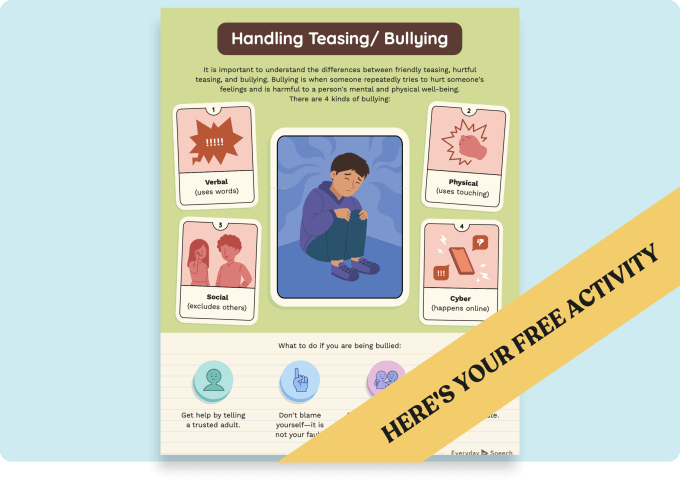Whole Body Listening: Enhancing Communication in Special Education
Get free social skills materials
No-prep lessons on self-regulation, emotional recognition, conversation skills, and more.
Sign up hereIntroduction
Communication is a vital aspect of everyday life, and effective communication skills are essential for students in Special Education. One such skill is whole body listening, which involves not only using our ears but also our entire body to show that we are actively engaged and interested in what others have to say. This blog post will explore the concept of whole body listening, provide a no-prep activity for educators, stimulate discussions on the topic, and suggest related skills to develop. Finally, we’ll offer next steps for further skill exploration.
No-Prep Activity: The Listening Game
To help students practice whole body listening, try this simple, no-prep activity called “The Listening Game.” It requires no materials or preparation and can be easily adapted for various group sizes and ages.
- Have your students form a circle and choose one student to be the “speaker.”
- Ask the speaker to share a short story or experience with the group.
- As the speaker talks, the other students should practice whole body listening by facing the speaker, maintaining eye contact, and using appropriate body language (e.g., nodding, reacting).
- After the speaker finishes, ask the group to discuss how they felt when they were actively engaged in whole body listening.
- Rotate the role of the speaker and repeat the process, allowing each student to practice both speaking and whole body listening.
This activity helps students become more aware of their body language and its impact on communication, fostering better interpersonal relationships and understanding.
Discussion Questions
- What are some examples of whole body listening that you observed during the activity? How did it make you feel when someone was using whole body listening while you were speaking?
- How can whole body listening improve our communication with others? Can you think of a time when someone’s body language made you feel heard or disregarded?
- What challenges might some students face when practicing whole body listening? How can we support them in developing this skill?
- How can whole body listening be applied in various settings, such as at home, in school, or in social situations?
- Why is whole body listening particularly important for students in Special Education? How can it contribute to their personal and academic success?
Related Skills
Whole body listening is just one aspect of effective communication in Special Education. Developing other related skills can further enhance students’ abilities to interact with others and navigate social situations. Some of these skills include:
- Active listening: Focusing on the speaker, asking clarifying questions, and providing feedback to show understanding.
- Empathy: Understanding and sharing the feelings of others, which can be fostered through whole body listening.
- Nonverbal communication: Interpreting and using facial expressions, gestures, and body language to convey meaning.
- Assertiveness: Expressing thoughts and feelings respectfully and confidently while considering the needs of others.
- Conflict resolution: Addressing disagreements and misunderstandings using effective communication strategies, including whole body listening.
Next Steps
Whole body listening is a valuable skill for students in Special Education, as it promotes effective communication, fosters understanding, and supports positive relationships. To explore more activities and resources related to whole body listening and other communication skills, sign up for free samples at Everyday Speech. By incorporating these skills into your teaching, you can empower your students to become more confident and successful communicators in their daily lives.


